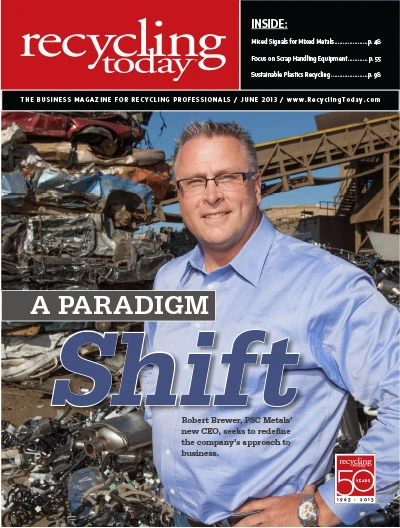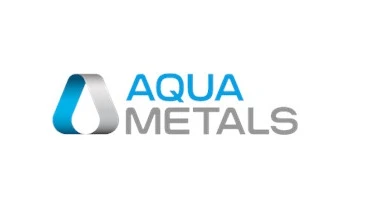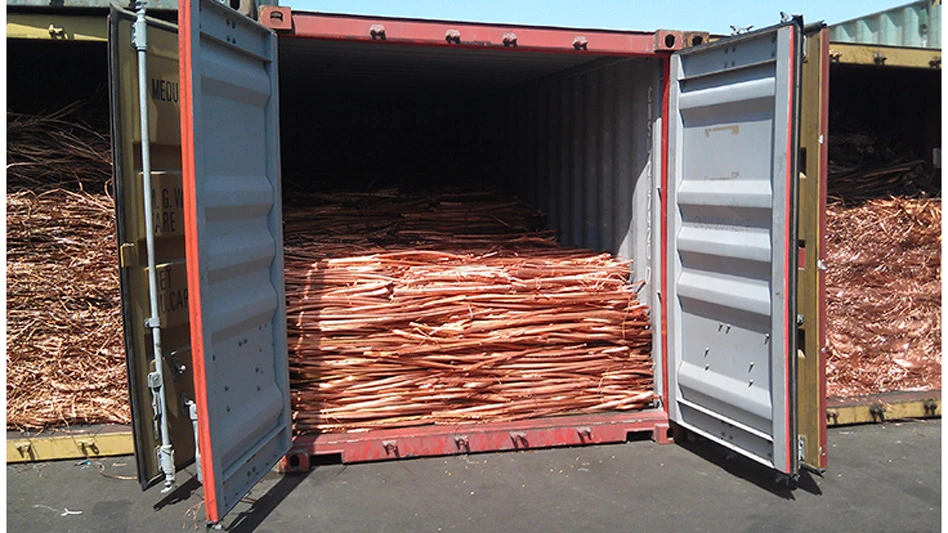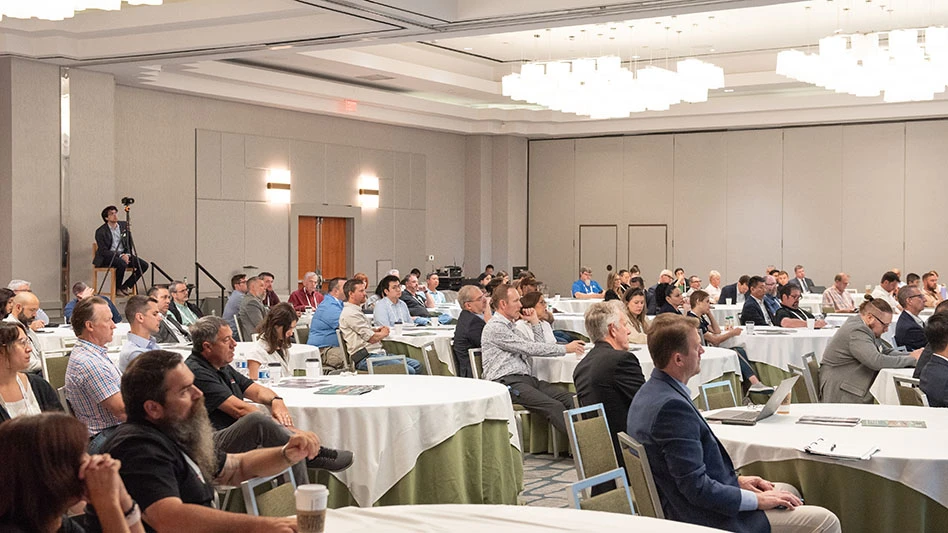 Robert Brewer, CEO of Cleveland-based PSC Metals, wants to remake the scrap recycling company so it can thrive in the rapidly changing scrap metal industry.
Robert Brewer, CEO of Cleveland-based PSC Metals, wants to remake the scrap recycling company so it can thrive in the rapidly changing scrap metal industry.
Brewer took the top spot with PSC in September 2012 and brought with him a significant background in the metals recycling industry, having spent nearly 20 years working at scrap metal giant OmniSource Corp.
“I had the opportunity to sit in every chair at the company’s Fort Wayne, Ind., headquarters except the CEO position,” Brewer says of his time with OmniSource.
When Brewer says PSC Metals needs to respect its past but also look for ways to change, his industry background gives his outlook weight. The challenge, Brewer says, is changing areas of the company to reflect where the industry is headed while maintaining PSC’s strengths.
“I see myself coming to a company with a group of people who are looking for someone to move the ball forward,” he says. “I found lots of talented people who have some ideas on how to move the business. People are aware and want to be a part of it. What I see is a willingness to take what we know and get to the new place.”
Brewer says a key will be tapping into the backgrounds of many of the company’s employees. PSC has roughly 50 locations in 10 states, in part because of the many acquisitions it has made over the past 20 years. Companies acquired during that span include Luria Brothers, Steiner-Liff Iron, Southern Foundry, Knox Metals, Cash’s Scrap Metal and Iron and Luntz Corp. Brewer says his goal is to reflect the entrepreneurial spirit possessed by these earlier companies.
While tapping into the legacy of the company may help, PSC also must overcome a past that includes having gone through two bankruptcies.
Growth at All Costs
As a result of numerous acquisitions in the mid- to-late-1990s, PSC Metals and its former parent company, Philip Services Corp., became over-leveraged. Ultimately, the weight of the debt and an economic downturn resulted in Philip Services Corp. and several of its subsidiaries, including PSC Metals, filing for bankruptcy protection in the middle of 1999 and again in 2003.
“I think most companies who went through this tremendous growth of consolidation and technology had problems. Everyone grew too fast. There was no thought of what happens when the cliff comes,” Brewer says.
The cliff Brewer refers to is the drop-off in volume and the margin compression that can come with a market downturn.
The involvement of famed investor Carl Ichan has helped PSC Metals to return to its position as one of the largest scrap metal recyclers in the country. Icahn and his affiliates increased their ownership stake in the company to 100 percent during the 2003 restructuring. On Nov. 5, 2007, PSC became a wholly owned subsidiary of Icahn Enterprises LP. The move helped to put PSC on solid fiscal footing.
While the deal gave PSC breathing room, the company needed to reinvent itself to be successful, Brewer says.
To Shred or Not to Shred
One item near the top of the list in PSC’s reinvention is the state of the auto shredder market. According to PSC Metals, which operates 10 shredders in the United States, repositioning its operations to maximize its shredding opportunities is one key to future success.
Brewer says plenty of sharp scrap metal operators feel there is an overcapacity of processing equipment in the market, especially auto shredders. “We have learned that the overcapacity of processing equipment has caused a phenomenon in the market and leaves many shaking their heads,” he comments.
Brewer adds, “Something has to happen internally. We can’t do it the way things were done in the past. We are going through a genesis moment on how we operate. We have to take knowledgeable scrap people and guide them through the paradigm shift.”
Stu Block, president of PSC’s Midwest region, says a current key to success in the scrap metal business is being able to make changes quickly. “Change is important and has to be done quickly.”
Block, who came to the company when his former company, St. Louis-based Cash’s Iron & Metal, was acquired by PSC in 2011, says the acquisition will be beneficial for the company in the long run. “We are making decisions today that will benefit us not only today but tomorrow as well. Our challenges are to think outside the box.”
 The shift Brewer wants to implement will require changes in PSC Metals’ approach while still focusing on its auto shredding operations. “There is a new way to do it,” he says of auto shredding. “The market has created a condition that we must react to and conquer. That is what we are looking to do.”
The shift Brewer wants to implement will require changes in PSC Metals’ approach while still focusing on its auto shredding operations. “There is a new way to do it,” he says of auto shredding. “The market has created a condition that we must react to and conquer. That is what we are looking to do.”
One step the company is taking is empowering the management and staff in different regions to respond to new industry dynamics. “With Bob, PSC is now giving people the room to do what they need to do to grow the business,” Block says. “The first thing Bob Brewer said to us was, ‘What can I do to make you more successful?’ He has encouraged us to grow the business, to make big moves.”
Despite its legacy as a traditional scrap metal company, Brewer says all opportunities are being investigated to strengthen PSC Metals’ bottom line.
For instance, Brewer says he is looking to change PSC Metals’ approach to scrap buying. “Many companies have become fixated on building a system of feeder yards to supply their shredder machines and have lost sight of the value of scrap metal recycling for the community. While keeping the company’s shredders supplied with enough material is important, absence of any focus on community recycling needs is shortsighted,” Brewer says.
Establishing Partnerships
Brewer also stresses the importance of trading scrap with other recyclers. “If we are second- or third-best in class in a marketplace, and our technology is not up to the level of the other guy’s a few miles away, we will most likely be most successful as a supplier [to other recyclers with better processing technology]. But, when we are best-in-class in a market area and we have superior technology, we will exploit the opportunity to grow and maximize our success,” Brewer observes.
Brewer says he sees great promise in focusing on PSC Metals’ strengths. “You look at some scrap companies and say, ‘Why are they trying to do it all? They are blowing their brains out to buy scrap and process it with little regard or knowledge of the margin results.’ Today’s successful scrap metal companies have a common theme: Focus on where you are best.”
He continues, “The recognition of the industry paradigm shift drives our strategy on doing what it takes to meet our profitability objectives. If that means we must change our model and process less material in some areas to gain profit, that is what we will do,” Brewer notes.
In the past, large volumes of material with big margins gave scrap metal companies the ability to “hide sins.” However, with margin compression, companies have to be efficient. “You have to do more with less. You have to attract people who bring the work ethic and are willing to drive to push the business to where it needs to be.
“The efficiencies of our business is job one for everyone here at PSC Metals,” Brewer says. “We have had to reinvent and go back to the entrepreneurial roots and look at running the company like a smaller business rather than a big business.”
Brewer says PSC’s business will continue to be focused on scrap metal. However, he acknowledges that customers likely will ask more of the company. “To stay on the cutting edge we must address other customer requirements, like total waste management services and zero-landfill objectives.” He says a better approach to providing such services is to partner with companies focusing on these other business sectors. “We have partnered with the proper people,” says Brewer.
Brewer says he wants PSC Metals to adopt the type of technology that encourages other companies to work with it. “I don’t think you should be a scrap dealer and do everything within a wall around your business. There should be legitimate trading over these walls.”
As for the overall shredding industry, Brewer says the business will continue to change and margin compression will continue to be a key issue for companies.
These challenges aren’t limited to any specific group of shredder operators or one geographic region, Brewer continues. Some larger companies also are making the decision to get out of markets where they are losing money. He says he expects to see many shredders idled in the current business climate.
At the same time, PSC is spending a significant amount of time working to develop a more comprehensive plan to handle the auto shredder residue (ASR) generated at its plants. “Nothing has to be waste. We are close to coming up with an answer for that.” He adds, “We are at the point of putting those technologies and capabilities within our grasp.”
While PSC is known for its 10 shredders, the company also has a significant position in nonferrous metals, handling 25 million pounds per month of this material. Because of the size of its nonferrous business, Brewer says the company converted its Harriman, Tenn., shredder into an aluminum shredder with a downstream system. “It is 100 percent dedicated to shredding aluminum products specifically for a single customer.”
Even in this sector, Brewer says PSC Metals needs to change its approach. Quality, whether on the ferrous or nonferrous side, is more important. In terms of shredded nonferrous scrap, Brewer concedes that PSC Metals is a few years behind, though it is in the process of evaluating new equipment that will allow it to further refine the nonferrous metals it handles to make them more marketable. “It is just the idea of having the right machine that will maximize metal separation,” Brewer says.
He continues, “We took the gamma technology, which is typically only used on the ferrous side, and we are doing that for aluminum; we are doing it because it is a value-added product the customer wants.”
Brewer’s paradigm shift includes taking a critical look at the company’s operations and being willing to act upon the information. “Get out of what you aren’t good in and focus on what you are good in.”
This move, says Block, is a difficult one. “Rightsizing is a painful but important step companies such as ours need to take. It is needed but difficult. It affects peoples’ lives. While we struggle to do it, it is something we have to do.”
Forward Momentum
PSC Metals remains a significant player in the scrap metal market. The company has 16 scrap metal facilities in the north; 19 facilities in the south; 12 in the Midwest; a catalytic converter decanning (disassembly) facility; an aluminum conversion business called Metal Solutions; a secondary pipe distribution business called CAPPCO; a plate distribution business; an auto parts business; and its corporate office in the Cleveland area.
“Our mission now is to make that transition of change,” Brewer says. “Innovation is what we are focusing on. We don’t want to just be recognized as the scrap dealer who is doing well today, but we want to leapfrog the competition and be recognized as the company that employs innovation and value. I want to see people knocking on the door saying, ‘How can I get in?’”
Regarding the current market and the recent refrain by scrap recyclers that there is a significant shortage of scrap in the market, Brewer contests the point. “I don’t think there is a major problem with available volume. The bigger problem is the competiveness for the feedstock. Mills are not begging for more material and exports are light, so scrap is staying within our borders. As a result there is a balance of scrap. It gets met every month.”
As for the future, Brewer is moderately optimistic, though realistic. “We see slow growth but nothing on the horizon that shows a cliff is coming,” he says. Another factor that makes Brewer sound more bullish is the fiscal situation of scrap metal recyclers. “We are seeing most businesses demonstrate fiscal responsibility. People aren’t involved in runaway growth based on the future. They are basing it on what is a sure thing today.”
The author is senior editor of Recycling Today and can be contacted via email at dsandoval@gie.net.

Explore the June 2013 Issue
Check out more from this issue and find your next story to read.
Latest from Recycling Today
- APR, RecyClass release partnership progress report
- Clearpoint Recycling, Enviroo sign PET supply contract
- Invista expanding ISCC Plus certification program
- Redwood partnership targets recycling of medium-format batteries
- Enfinite forms Hazardous & Specialty Waste Management Council
- Combined DRS, EPR legislation introduced in Rhode Island
- Eureka Recycling starts up newly upgraded MRF
- Reconomy Close the Gap campaign highlights need for circularity





